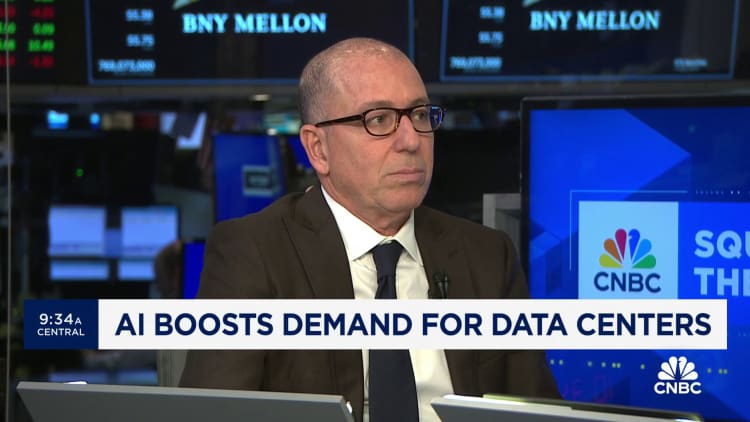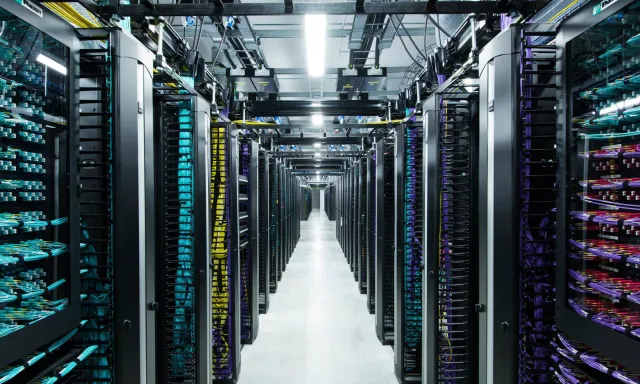The EU’s $2.1 million ASCEND study found space-based data centers feasible, potentially reducing the over 1,000 terawatt-hours of power data centers will consume by 2026, with facilities orbiting at 1,400 kilometers using solar energy
The increasing demand for data centers to keep up with the expanding tech sector is driven by the rise of artificial intelligence. This is prompting Europe to investigate digital storage space options to reduce its reliance on energy-intensive terrestrial facilities.
Damien Dumestier, the project manager, has reported that the Advanced Space Cloud for European Net zero emission and Data sovereignty, a 16-month-long study investigating the feasibility of launching data centers into orbit, has reached a “very encouraging” conclusion.
Thales Alenia Space, on behalf of the European Commission, coordinated the 2 million euro ($2.1 million) ASCEND study, which asserts that space-based data centers are technically, economically, and environmentally feasible.
Dumpster informed CNBC that the concept is to eliminate a portion of the energy consumption for data centers and relocate them to space to capitalize on the inexhaustible solar energy source.
‘Data inundation’
Data centers are indispensable for maintaining the tempo of digitalization; however, they necessitate substantial quantities of electricity and water to operate and cool their servers. According to the International Energy Agency, the total global electricity consumption from data centers could exceed 1,000 terawatt-hours in 2026, approximately equivalent to Japan’s electricity consumption.
Merima Dzanic, the director of strategy and operations at the Danish Data Center Industry Association, warned that the industry is on the brink of a “data tsunami.”
“The energy requirements of AI data centers are approximately three times greater than those of traditional data centers, which is a concern not only in energy but also in consumption,” she declared to CNBC.
Dzanic further stated that a “completely different approach to constructing, designing, and operating data centers” is necessary.

Demand for data centers has really only begun, says Thor Equities CEO | CNBC
The facilities the study investigated for space launch would orbit approximately 1,400 kilometers (869.9 miles), approximately three times the altitude of the International Space Station.
Dumestier clarified that ASCEND’s objective is to establish the foundation for the commercialization of cloud services by deploying 13 data center building units with a combined capacity of 10 megawatts in 2036.
He stated that each building block with a surface area of 6,300 square meters is launched within a single space vehicle and has the capacity for its data center service.
According to Dumestier, the goal is to deploy 1,300 building units by 2050 to achieve 1 gigawatt and significantly influence the energy consumption of the digital sector.
Ecological launch
ASCEND’s objective was to investigate the comparative environmental impact and potential of space-based data centers to assist Europe in achieving carbon neutrality by 2050.
The research determined that a new type of launcher that is ten times less emissive would be required to reduce CO2 emissions substantially.
One of the 12 companies involved in the study, ArianeGroup, is currently working to expedite the development of reusable and eco-friendly launchers.
According to Dumestier, the initial eco-launcher is anticipated to be operational by 2035, with a subsequent 15-year deployment period to create the necessary capacity to make the project feasible.
However, Dzanic cautioned that the somewhat “fringe” concept of space-based data centers does not entirely resolve the issue of sustainable energy utilization. “It is merely one component of the puzzle,” she stated.
The European Data Centre Association’s managing director, Michael Winterson, acknowledges that a space data center would benefit from increased efficiency from solar power without interrupting weather patterns.
However, the center would require substantial rocket fuel to maintain its orbit.

Andrey Semenov | Istock | Getty Images
Winterson predicts that a modest 1-megawatt center in low earth orbit would require approximately 280,000 kilograms of rocket fuel annually, costing roughly $140 million, by 2030.
This calculation is predicated on a substantial reduction in launch costs, which has yet to occur.
“While there will be specialized services that are appropriate for this concept, it will not serve as a market substitute,” stated Winterson.
“Specific applications, including broadcasting, telecommunications, financial trading services, and military/surveillance, may be well-served.” In emailed comments, he stated that only some other services could operate competitively from space.
Dzanic also expressed skepticism regarding security risks, stating, “Space is being increasingly politicized and weaponized amongst the different countries.”
Therefore, it is evident that the form of data that is transmitted has security implications.
Global leader
ASCEND is not the sole investigation into the potential of orbital data centers. Microsoft is collaborating with companies such as Loft Orbital to investigate the obstacles associated with implementing AI and computation in space.
The company has previously trialed a subsea data center 117 feet below the seafloor. “Its work is essential for innovation and to establish the foundation for future data management solutions in space,” a Microsoft spokesperson stated to CNBC.
ASCEND is one method by which the European Union aims to establish a competitive edge in the AI ecosystem, which is presently trailing behind the United States and China. Dzanic stated.
She also stated that the EU is only “beginning to wake up and smell the coffee and go in with funding these projects.”
The ASCEND researchers are currently in discussions with the International Space Agency regarding the next phase, which involves consolidating all the data they have collected and the development of a heavy lift launcher.
Dumpster stated, “Our objective is to guarantee data sovereignty for Europe; however, this type of initiative may prove advantageous to other nations.” “We exert ourselves excessively because we can discern that the project is up-and-coming.”
It has the potential to serve as a flagship for the advancement of space technology in Europe.
